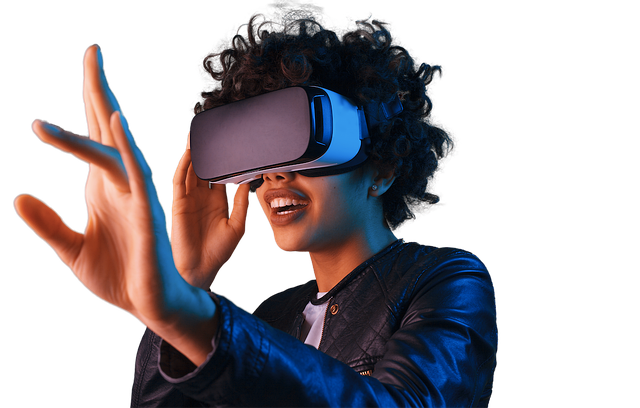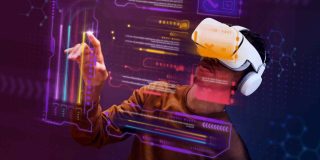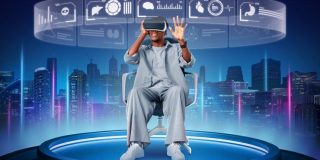From practical learning to the virtual experience, the metaverse can transform learning for the betterment of humanity.
The education sector has come a long way in the last few decades. Projectors have replaced blackboards, and online learning is replacing traditional learning.
From pocket calculators to smartphones, technology has transformed education to a great extent. Indeed, the transformation is outstanding. However, it’s still far away from bringing the best out of the education sector.
The new technological sensation, the metaverse, has taken the challenge of shaping a better future.
From social interactions to the economic sector, the metaverse is aiming to change the dynamics of human lives.
The education sector will benefit the most from the advancement of technology. The metaverse can take education to heights humans haven’t imagined.
This article will shed light on how the metaverse can transform the educational system.
Defining Metaverse:
The metaverse is an advanced technology. It uses augmented (AR) and virtual reality (VR) to create a virtual space for users. The technology allows users to experience things they can’t or don’t want to experience in real life.
A user can wear a VR headset and attend a concert or a wedding in a digital world. It allows users to experience things that are beyond reality.
Metaverse technology has yet to hit its peak. However, scientists believe it can be a game changer for humanity in the future.
At the same time, some researchers believe metaverse technology can limit humans to a fake virtual world. Despite the scepticism, no one is denying the fact the metaverse can do wonders in various sectors. Medicine, engineering, and education are some of the fields that will benefit most from the metaverse.
How Can Metaverse Transform Learning?
The learning system has changed a lot in the last few decades. But it still needs advancement to create a greater impact on humans.
With the rise of the metaverse, one can hope the time has come to bring creativity to learning. Here is how the metaverse can transform the education system;
- Provides a Virtual Learning Space
Indeed, physical classroom learning has its advantages. But is it the best option under all circumstances? We have seen that in the pandemic era in 2020. Physical classroom learning has several limitations that can impact the learning process.
Metaverse technology provides an alternative to tangible classrooms. The technology provides a virtual learning space.
It will eliminate every kind of disruption. It will allow teachers and students to join 3D classrooms from anywhere.
Moreover, schools and colleges won’t have to conduct physical classes for every subject. Thus, the shift can save stakeholders time, energy, and money. More importantly, 3D classrooms will induce interest among the students.
- Eradicate Geographical Boundaries
The technology has revolutionized learning. But, still, education isn’t the same for everyone. A student in Harare doesn’t have the same learning opportunities as a student in New York. Thus, people still have to struggle for better education.
The metaverse can eradicate geographical boundaries to offer better learning options. With its virtual learning space, a student living in Kenya can attend a learning session led by a teacher in Canberra. Similarly, a professor with immense experience can conduct a virtual lecture for students living in developing states. It will allow people to interact with people of other cultures and languages.
So, the metaverse can add a new dimension to the education system.
- Promotes Practical Learning
Practical learning hasn’t transformed much despite the advancement of technology. The situation is worse in developing states.
Metaverse can overcome these problems in the learning system. Virtual technology promotes practical learning.
A student can see how Sodium makes ionic bonds with Chloride instead of listening to the teacher. Similarly, instead of teaching students about the dinosaurs, students can enter their world.
The practical education will make the learning process more appealing. It will help students understand complex concepts of chemistry, physics, and other subjects.
- Improve Learning Patterns:
The practical and virtual learning space makes education enjoyable. The new features make learning more interesting for students. It helps students pay more attention and understand complex concepts. As a result, the technology accelerates the learning process.
- Allows Virtual Experiments:
Practical experiments are a vital part of the learning process. They help students understand theories in a better way. Practical experiments also help students hone their skills. However, not all institutes provide facilities for experimental learning. Laboratories are expensive to build. So, many students are deprived of practical experiments.
Metaverse allows experimental learning. Now, students can perform virtual experiments. Engineering students can practice complex experiments. Medical students can perform virtual surgeries. It also allows students to explore historical places across the world.
So, virtual experimental learning will help students enhance their theoretical knowledge. It will provide students with first-hand experience about various concepts.
- Provides First-Hand Knowledge:
Sometimes, students can’t relate to theoretical knowledge. They read about climate change, world wars, and natural disasters. However, they may not fully relate to the destruction of these events.
With metaverse, students can have first-hand knowledge of various concepts. Metaverse can show real scenarios on climate change and other topics. Now, a student can see how global warming will affect our world. Similarly, a student can see how wars affect our world. So, the metaverse can be an effective tool for learning.
Key Takeaways:
Metaverse has the potential to be a game-changing technology for humanity. It has the potential to revolutionize the education sector. It can replace physical classrooms with 3D virtual learning spaces.
Metaverse can dissolve geographical boundaries for students living in developing nations. It allows experimental learning to help students enhance their theoretical knowledge. To conclude, the metaverse is the future, it will transform education for the betterment of humanity.





 Case studies
Case studies Career
Career